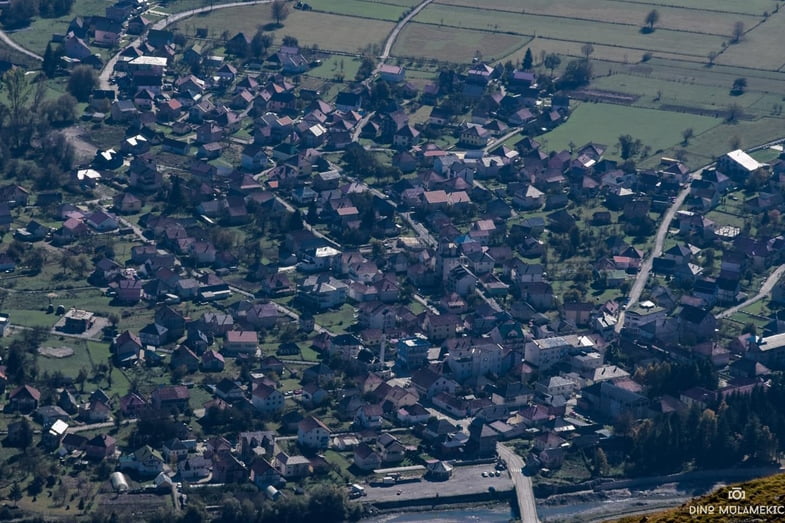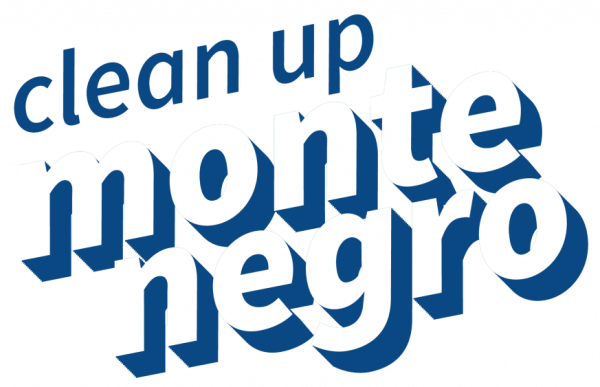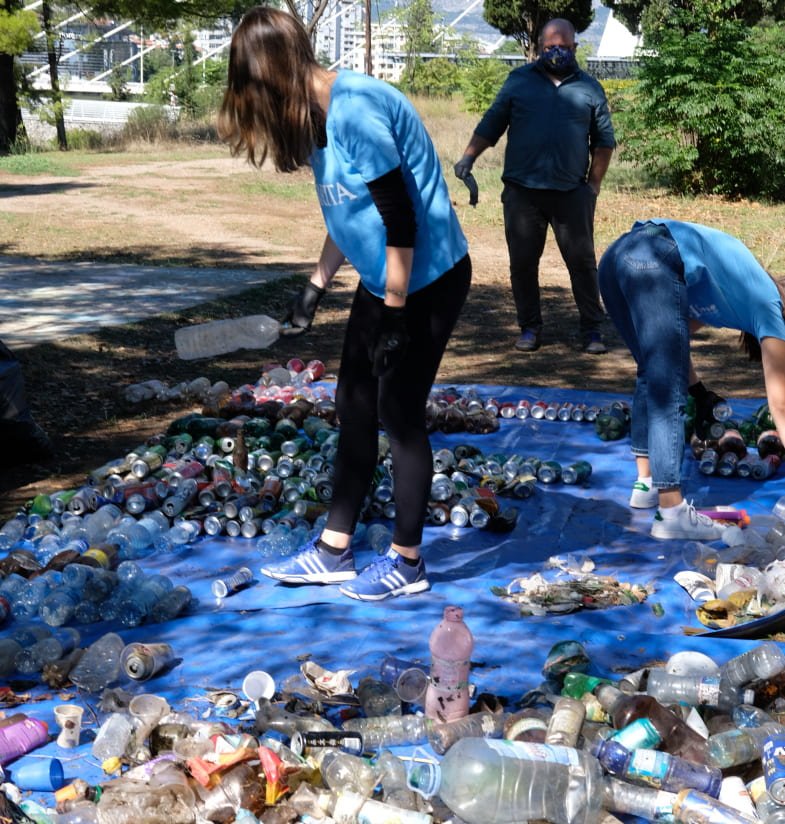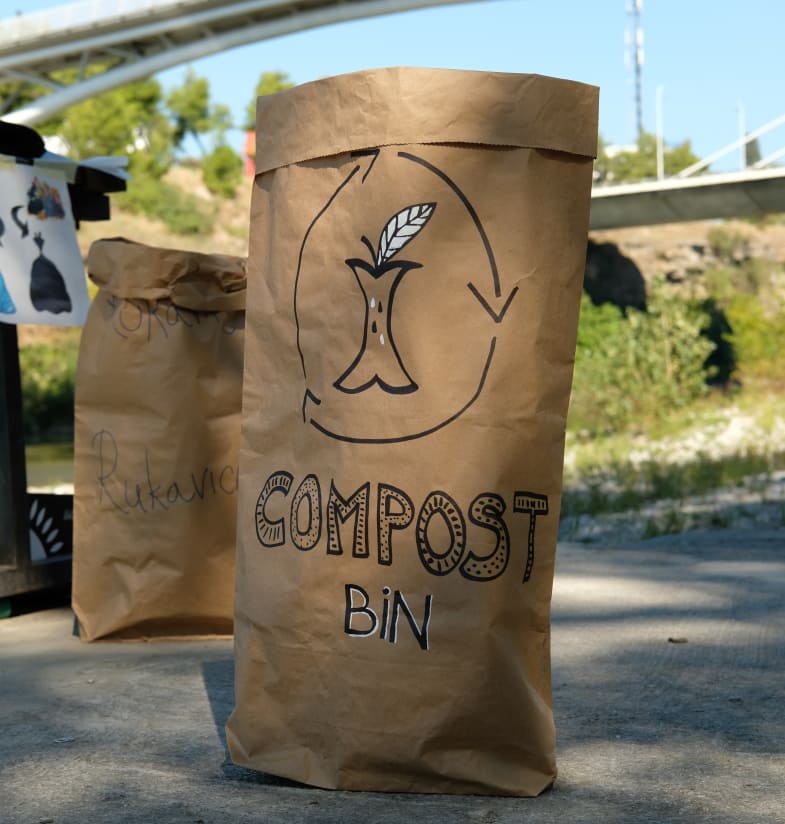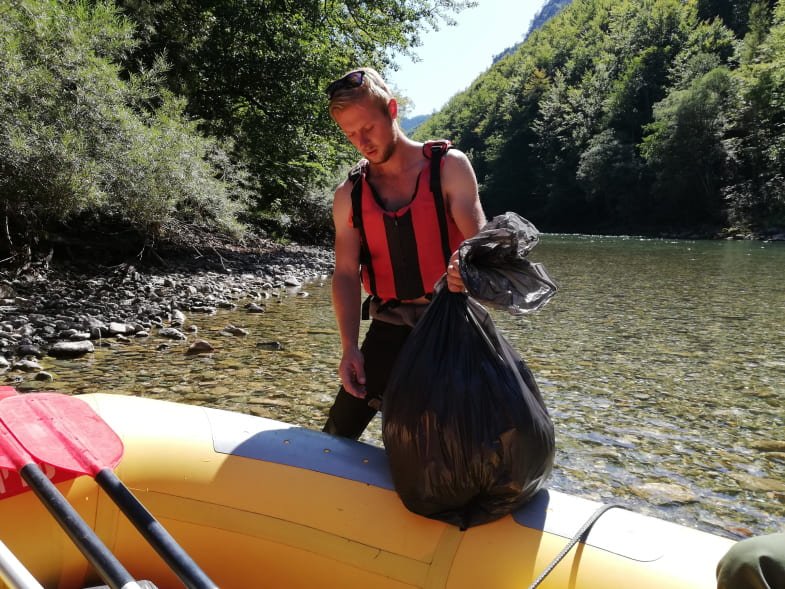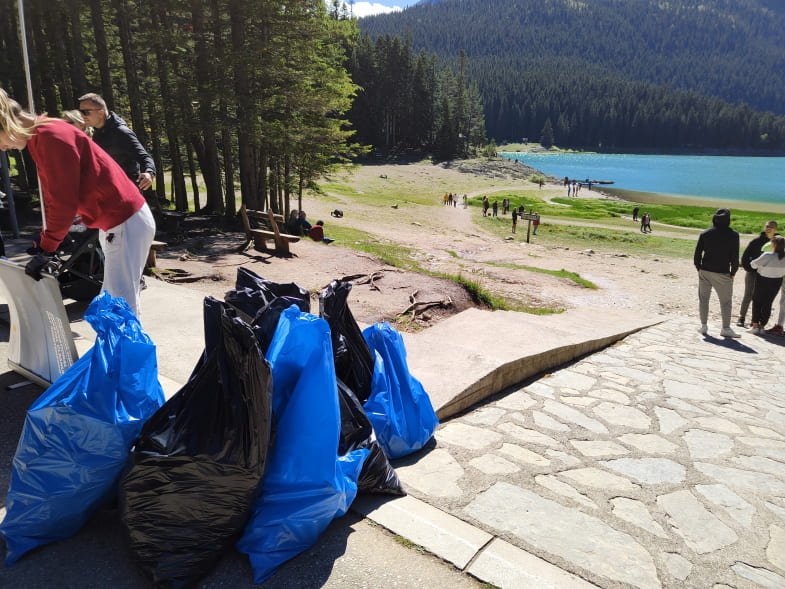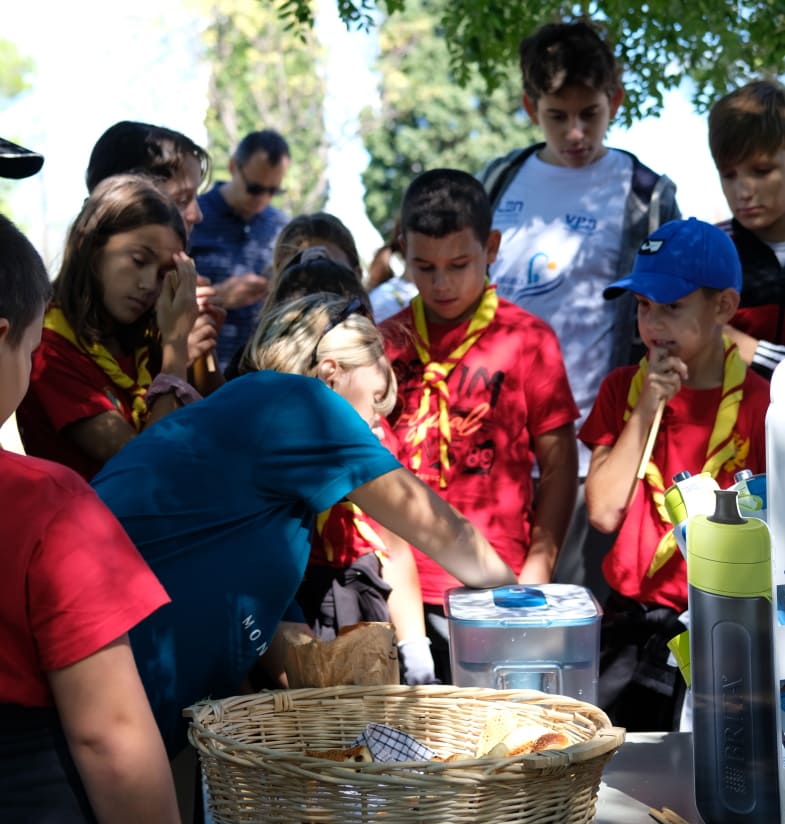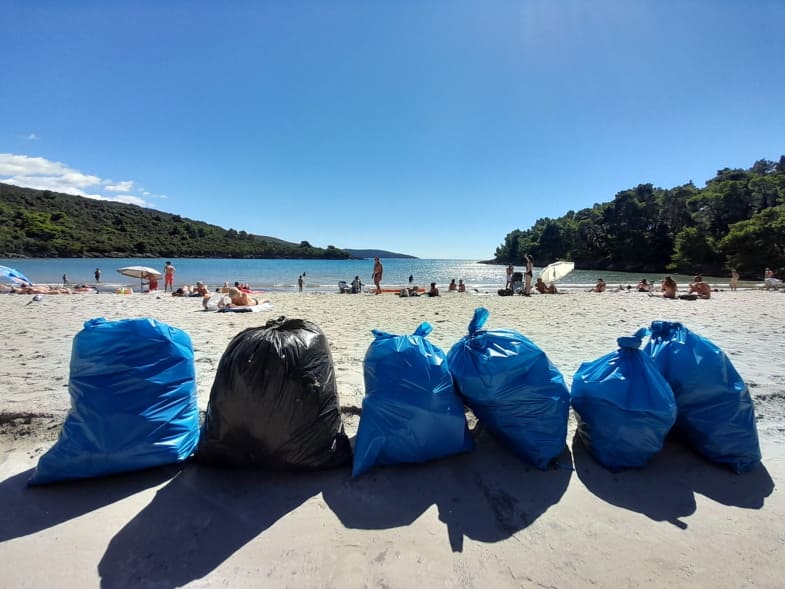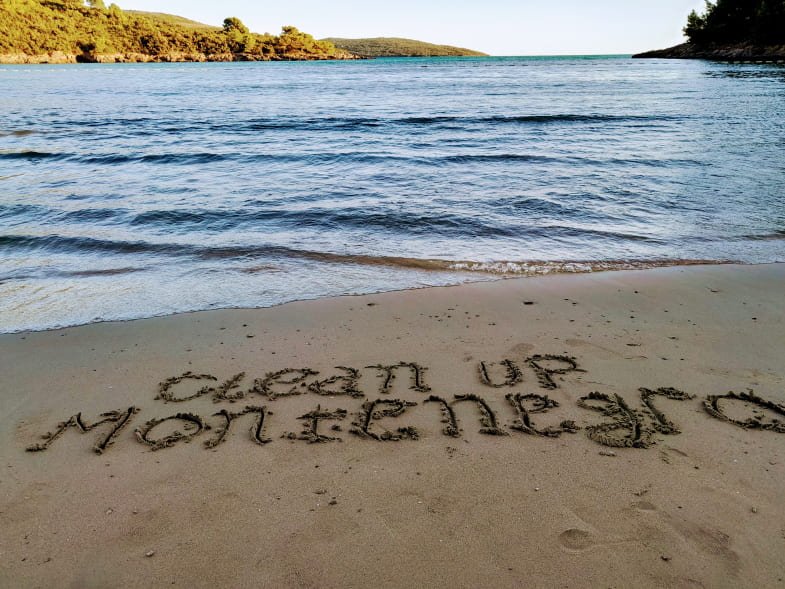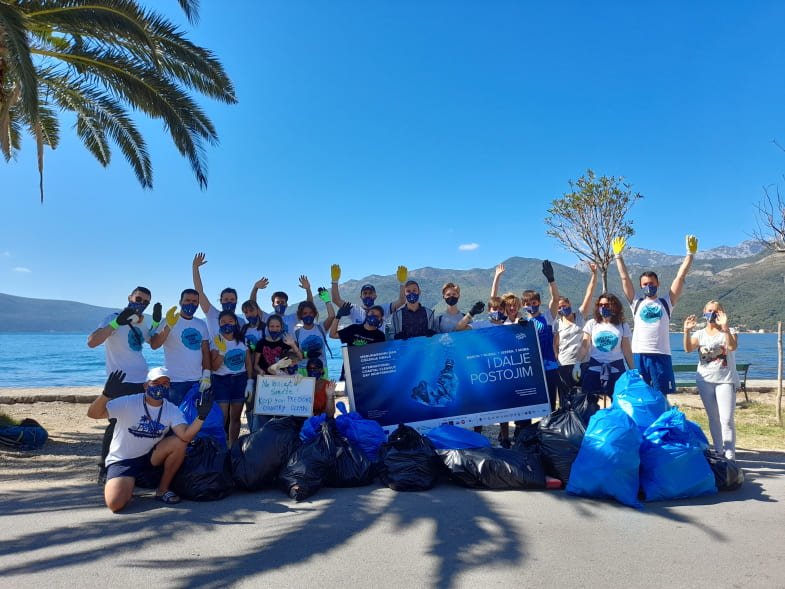ZERO WASTE MONTENEGRO
Changing
the way Montenegro tackles waste
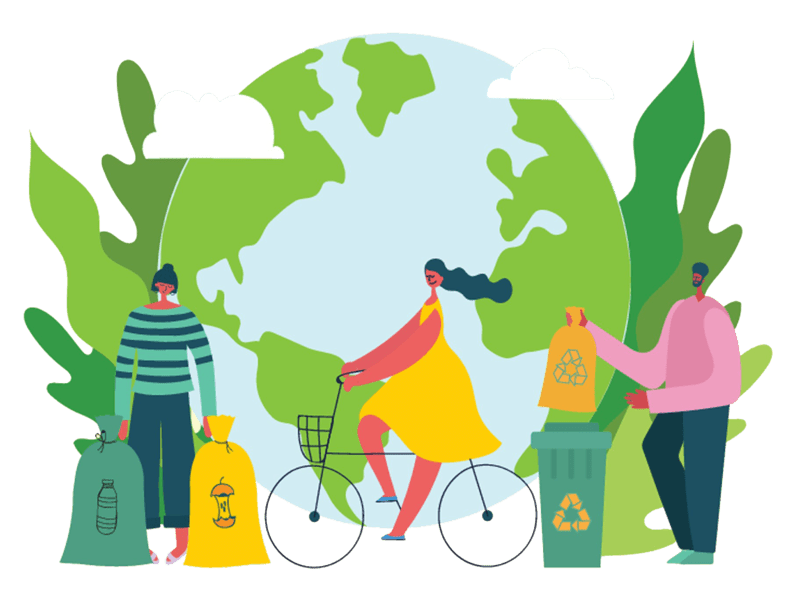
Citizens
We can’t do everything, but if we could all do what is possible to us.

Institutions
Partnership with stakeholders from Montenegrin public institutions .

Businesses
We provide services to assist you in Waste Management plans in your company.

Educators
Resources for education, activities and videos for children and adults.

Visitors
Be respectful to the local community and do not leave anything behind.

WHAT IS ZERO WASTE?
“Zero Waste is a goal that is both pragmatic and visionary, to guide people to emulate sustainable natural cycles, where all discarded materials are resources for others to use. Zero Waste means designing and managing products and processes to reduce the volume and toxicity of waste and materials, conserve and recover all resources, and not burn or bury them. Implementing Zero Waste will eliminate all discharges to land, water, or air that may be a threat to planetary, human, animal or plant health. ”
Definition of Zero Waste as adopted by the Zero Waste International Alliance
What we do?
“Zero Waste is a goal that is both pragmatic and visionary, to guide people to emulate sustainable natural cycles, where all discarded materials are resources for others to use. Zero Waste means designing and managing products and processes to reduce the volume and toxicity of waste and materials, conserve and recover all resources, and not burn or bury them. Implementing Zero Waste will eliminate all discharges to land, water, or air that may be a threat to planetary, human, animal or plant health. ”
Zero Waste Hierarchy
Follow the steps towards more sustainable resource management.
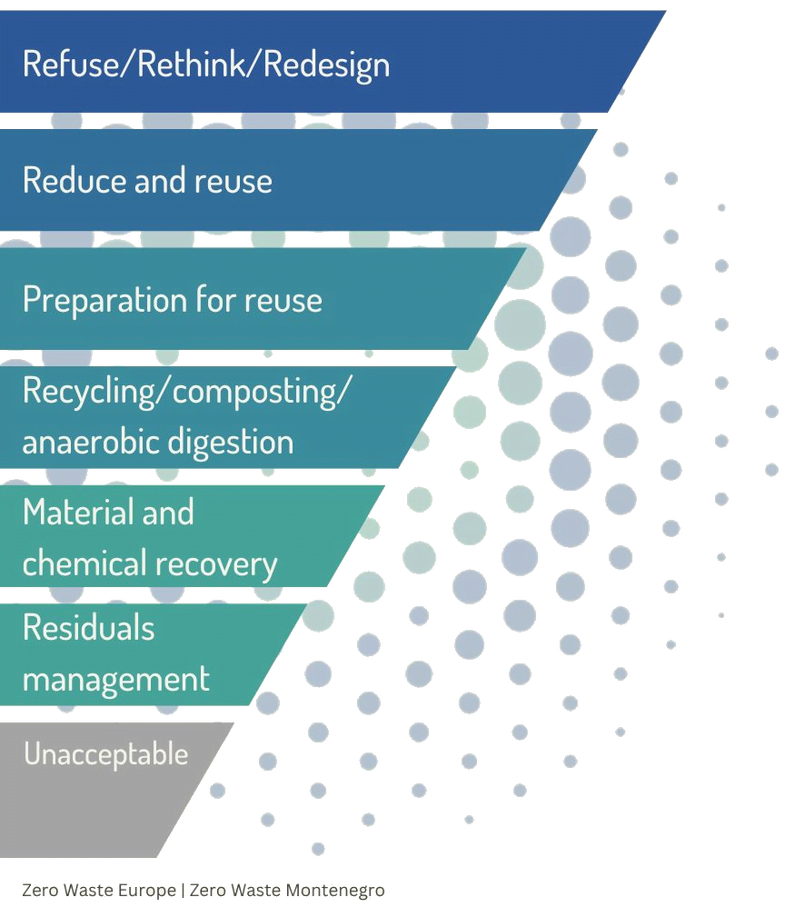
Refuse what we don’t need and change the way we produce and consume by redesigning business models, goods and packaging in order to reduce resource-use and waste.
Minimize the quantity, toxicity and ecological footprint of consumption. Use products or components, that are not waste, for the same purpose for which they were conceived.
Check, clean or repair products or components of products that have become waste so that they can be re-used without any other pre-processing
High quality material recovery from separately collected
waste streams.
Technologies to recover materials from mixed waste and discards from sorting processes into new building blocks for high quality applications.
What cannot be recovered from mixed waste is biologically stabilised prior to landfilling.
Options that don’t allow for material recovery, have high environmental impact and create lock in effects that threaten the transition to Zero Waste: waste to energy incineration, co-incineration, plastic to fuel, landfilling of non-stabilised waste, gasification, pyrolysis, illegal dumping, open burning and littering.
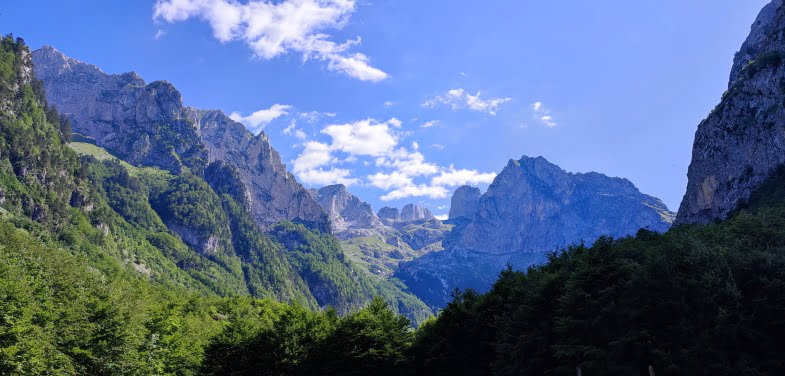
Our vision for Montenegro
Our mission is to revolutionize waste management in Montenegro through the principles of zero waste and circular economy. Our goals include promoting resource efficiency, amplifying environmental education, and supporting institutions and businesses to implement the best zero-waste practices.
We envision a future where waste is no longer a burden but a resource. By fostering a culture of responsibility and environmental consciousness, we aim to establish Montenegro as a true ecological leader, setting an example for individuals, institutions, and businesses.
Gusinje: first Montenegrin municipality on the path to become a zero waste city
